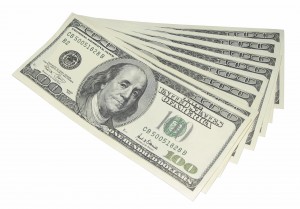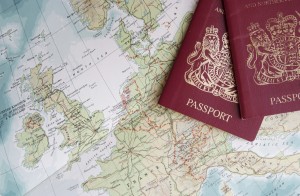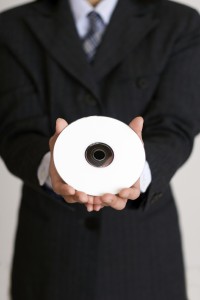All About Safes
 You’ve outfitted your home with locks and alarms; maybe you even have surveillance cameras. But what have you done to protect your most valuable possessions, such as cash, jewelry, firearms, important paperwork, and computer data? For these, you need a safe.
You’ve outfitted your home with locks and alarms; maybe you even have surveillance cameras. But what have you done to protect your most valuable possessions, such as cash, jewelry, firearms, important paperwork, and computer data? For these, you need a safe.
A safe can preserve its contents, even if the building burns down around it. A safe will slow down a burglar, giving time for the police to respond to your alarm system.
Choosing a Safe
Safes come in many different sizes, types, and grades. You see safes for sale at office supply stores, sporting goods stores, and even at the big warehouse sellers. People tend to put their most valuable and prized possessions in their safe and yet some people will pick a safe based purely on size or price without knowing what options are out there. How do you know what to look for to ensure you're buying something that will actually protect you when you need it to? This is why it's so important to talk to our safe professionals at Northeast Security Solutions.
If someone walked into a car dealership and said, "I need to buy a vehicle," the car experts would need a lot more information from that person. Does this consumer need a sedan, an sport utility vehicle, or perhaps a minivan? Is fuel economy a concern? Do they care more about luxury features or is safety their primary focus?
The same holds true when it comes to safes. There are a lot of options available and speaking with a safety expert will help you narrow the field to help you select the one that best suits your needs. Here are some common questions you need to ask yourself when purchasing a safe:
What's the value of what you're protecting?
Just as you wouldn't insure a $450,000 Lamborghini Aventador the same way as a $12,000 Nissan Versa, the safe style you choose should be comparable to the value of the objects you're trying to protect. The safe you choose to protect your important paperwork such as birth certificates and your passport would be different than one designed to protect family heirloom jewelry. We can point you to the level of protection that is appropriate for what you're protecting.
Are you looking to protect against Fire, Burglary, or Both?
Most people's instinct is to automatically say "Both," and if you have an unlimited budget then we can move right over this question. However, that's not the case for most customers. A safe designed to primarily protect against fire will obviously still have a lock on it, but it may only be wrapped in light steel that would be easily drilled through or pried open. A safe primarily designed for burglary protection will have thicker and/or stronger steel than a fire safe but will offer little to no protection against fire. A combination fire and burglar safe will have features to protect again both but will come at a larger price tag which may mean compromising on size if cost is a concern for you. We can help you weigh your options to make sure you make an informed decision.
 Are you protecting media such as CD's or a flash drive?
Are you protecting media such as CD's or a flash drive?
A traditional fire safe is designed to keep the inside temperature of the safe from reaching the "flash point" of paper as long as possible - that is the temperature at which paper will combust into flames. However, a CD or a flash drive will begin to melt at a temperature much lower than the flash point of paper. That is why it's important to buy a "media safe" if you think this is something you'll be protecting. We can show you which safes can accommodate this feature.
What size safe do you need?
Whatever size you think you need, get one larger. We commonly hear from our customers that they wished they had gotten a larger safe because they think of many more items they could place in their safe once they get it home and start using it. Obviously you have to take into consideration the limitations of the space you plan on putting the safe in and the size of the door openings and stairway width getting to that space, but leaving some space for future expansion whenever possible is a good idea. It's always cheaper to spend a little more money buying a size bigger now then to buy a bigger safe down the road.
Safe Types
There are many types of safes, these are just a handful of common ones:
- Home Safes
- Cashiers safes
- Depository Safes
- Gun Safes
- Pistol Safes
- In-Floor Safes
- In-Wall Safes
- Day Locker Safes
- Hotel Safes
- Jewelers safes
Common Items to Protect in a Safe
As we mentioned earlier, many people think of other things to place in their safe once they get it home. Here is a list of some common things to consider protecting in your safe to help you make the best choice on what size to get:
- Birth, Marriage, or Death Certificates
- Passports
- Social Security Cards
- Estate Planning Documents
- Adoption Paperwork
- Insurance Policies (Life, Property, Auto, etc.)
- Custody Agreements or Divorce Paperwork
- Military Service Records
- Power of Attorney Records
- Immunization and Health Records
- Receipts from Valuable Purchases for Insurance Purposes
- Deeds or Titles to Real Estate or Vehicles
- Savings Bonds
- Stock Certificates
- Savings Account Passbooks
- Checkbooks
- Tax Returns (At least seven years worth)
- Firearms & Ammunition
- Precious Metals Like Gold & Silver
- Jewelry
- Video Tape of Home's Contents for Insurance Records
- Collectibles
- Photo Negatives or Backup Disks
- Spare Keys
